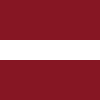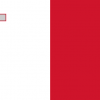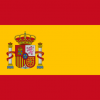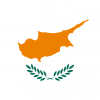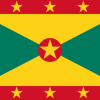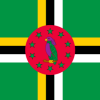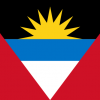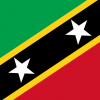
Below you can find information about all 8 jurisdictions offering various business immigration programs. Each of the countries mentioned below has its own pros and cons, so it is essential to gather full information regarding all possibilities before making a final decision.
If you have any questions or if you are willing to apply for any of the jurisdictions offered – please contact our agents now!
Latvia is a country located in the Baltic region of Northern Europe; it is one of the three Baltic States. Latvia is becoming increasingly attractive to foreign citizens – both, from other European Union countries or countries outside of EU – either for tourism or business purposes. Business immigration is becoming increasing popular due to favourable business, legal and infrastructure environment. 683.6 thousands of travellers with business-related purposes travelled to Latvia in 2016.
Due to the location of Latvia, it can be considered as a logistic hub of Eastern Europe with its 3 seaports, convenient transport and rail junctions, developed technical and IT together with one of the fastest internet connections. Currently Latvia is offering a residence permit program, allowing foreign investors to apply for a residence permit, based upon investment made.
A well-established Latvian infrastructure makes country’s inhabitants lives easier and its trade business more competitive. Latvia is highly appreciated in the world markets for its engineering and research facilities such as research centres, schools and universities, organising conferences, summits and business meetings for professionals of a different scale and business segments.
Malta is a Southern European island country, which consists of an archipelago in the Mediterranean Sea. It lies 80 km south of Italy. Malta offers two golden visa programs: one – for citizenship, and one – for permanent residency. Indefinite residency program grants indefinite residency rights in exchange for a minimum 250,000 EUR investment in Maltese government bonds for at least 5 years, 30,000 EUR contribution to the State Fund of Malta as well as a purchase or rent of a property. While Maltese and English are official languages, Italian and French are also widely spoken.
In 2016 there were 34,157 foreigners registered as working in Malta. About 75% of them came from EU and EEA countries and about 25% were citizens from Third World countries. The majority of immigrants were from Italy, United Kingdom, Bulgaria, Romania, Serbia, Hungary and the Phillipines. Currently Malta is offering a second citizenship program, allowing foreign investors to apply for a citizenship.
Malta’s government has eliminated taxes and tariffs on goods import, provided by companies which were licensed to trade in the Malta Freeport terminals. The country has also signed double taxation treaties with most of European, Middle East and Third World countries, allowing businessmen and foreign investors to benefit from reduced tax rates when repatriating profits and receiving tax exemptions on certain incomes after their distribution by Maltese subsidiaries or branches.
Spain is located on the Iberian Peninsula in south-western Europe, with Canary Islands off the North African Atlantic coast. Spanish culture is highly impacted by Roman culture with a slight addition of local identity, which will differ depending on province. Foreigners travelling to Spain for business purposes are able to obtain a residence permit, also called a Spanish Entrepreneur visa or the Spanish Gold Visa. All the foreigners who wish to relocate to Spain are welcomed to obtain country’s residence without having the knowledge of Spanish language or studying the history of the country.
Main industries, supporting economic growth, are machinery, metals, textiles, agriculture, chemicals, vehicles, shipbuilding and tourism. Spain is considered one of the largest railroads and transport equipment manufactures in the world. 6 of the 10 most well-known vehicle construction companies are based in Spain. By the end of 2016 about 33% of the Spain’s total gross domestic product (GDP) was registered from its exports. Starting from 2014, it is viewed as a country which has the 2nd world’s largest foreign-tourist industry, accounting about 11% of Spain’s GDP.
By the end of the 2016 there were 74 million tourists having visited the country, 6 million of which have been integrated in country’s national environment. In Spain immigration is not considered a cultural threat as it is in some other countries.
Cyprus is an island country in the Eastern Mediterranean. Tourism in Cyprus takes a dominant position in the economy. Cyprus is an advanced, high-income economy with a very high Human Development Index. Cyprus also offers citizenship by investment programme that is established by Cyprus Developers Alliance jointly with KPMG.
Cyprus is quite famous among entrepreneurs for its banks and tax regime, making it a perfect destination for setting up a holding company. Blooming banking and financial sectors offer numerous opportunities to those, seeking for a business-friendly tax haven jurisdiction with favourable immigration policy.
Cyprus developed a new tourism strategy that aims to double the arrivals of country visitors, which will triple it tourist revenue and attract about 20 billion euros in new investment by 2030. It is recognised worldwide by its beaches, ranked as the most excellent in Europe due to their water quality.
Grenada is an island country in the Caribbean Sea and it consists of the island of Grenada and six smaller islands located at the southern end of the Grenadines island chain. With a help of government, a new petrochemical exploration program and thriving tourism industry, Grenada is changing into one of the most desirable places in the world to do business, work, live and retire. In order for an investor to acquire Grenada citizenship, an investment to the National Transformation Fund is required.
The economy of Grenada is based on the usage of its natural resources – fruit and vegetable gathering (bananas, guavas, tamarind, citrus, passion fruits, avocados, mangoes, corn), timber processing, sugar milling, brewing, rum distilling, soap making, copra processing, cigarette production, shipping, fishing in deepwater harbours and education.
The Commonwealth of Dominica is a sovereign island country located northwest of Martinique and southeast of Guadeloupe. The economically secure country with a parliamentary democracy has no taxes for non-residents. The Commonwealth of Dominica offers an official economic citizenship to those seeking a valid second passport. Dominica offers the cheapest citizenship by investment program in the world with reputable second passports starting at only 100,000 USD.
Dominica’s economy is based on production and processing of natural resources such as hydropower, petroleum, timber and arable land. Its economy depends mainly on agriculture and tourism sector. 1/3 of the country’s labour force works in agricultural sector. In 2016 state’s government set a priority for developing tourism and construction on the island.
The largest business sectors, being developed in the country, are corporate activities, payment processing and an offshore banking. Dominica establishes foreign business relations to promote its cooperative ventures and alliances by cultivating diplomatic ties with the countries of African, Pacific and Caribbean group.
Antigua and Barbuda are islands that can be found between the Atlantic Ocean and Caribbean Sea. In addition to both major inhabited islands, Antigua and Barbuda, there are numerous smaller islands. Antigua is famous for its many luxury resorts. Antigua and Barbuda also has a very generous tax system and doesn’t include a tax on gift, wealth, foreign income, inheritance or capital gains. The islands have established an economic citizenship program for investors wishing to acquire passport and citizenship.
Some part of the economy is made up by financial services and investment banking. Country’s GDP composition by sector (2017): agriculture – 2.2%; healthcare and technological industries – 17.8%; services – 80%. The total contribution of travel and tourism sector to GDP in 2016 was 60.4% of GDP. In 2016 travel and tourism activities directly supported 6,000 jobs (16.7% of total employment).
The Federation of Saint Kitts and Nevis, more officially called the Federation of Saint Christopher and Nevis, is a country consisting of two islands and located in the Caribbean region. Due to English as an official language, high levels of broadband access and high literacy rate (98%), Saint Kitts and Nevis is a perfect place for doing business. It also offers advantageous tax system. A Citizenship by Investment Program (CIP) for everyone who wishes to become St. Kitts and Nevis’s citizen was established in 1984.
Saint Kitts and Nevis economy is characterised by its dominant agriculture, light manufacturing and tourism industries. In fact, St. Kitts is highly dependent upon tourism to drive its economy. Tourism industry has been expanding since 1978. In 2007 there were 379,473 arrivals to Saint Kitts and the number grew to 587,479 in 2009 or in other words: just below 40% growth in two years.
St. Kitts and Nevis’s net migration rate, showing the amount of persons, who entered the country in 2016, was 1.2 migrants per 1000 of the population. St. Kitts allows foreigners to obtain the status of its citizens by applying to a government sponsored investment programme referred to as Citizenship-by-Investment.
